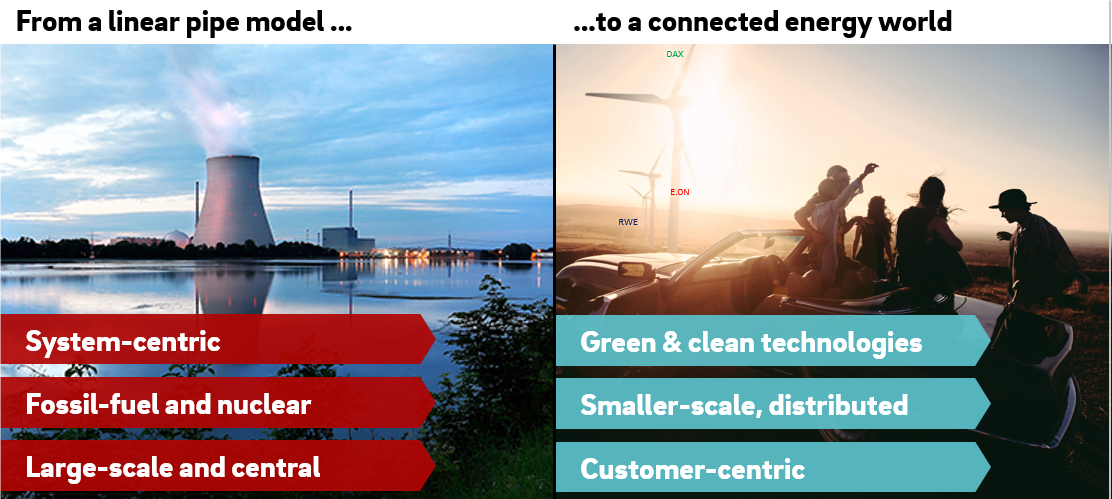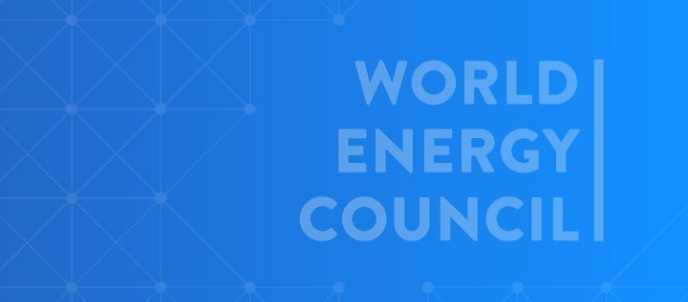My View on Energy Transition
AUTHOR: Burkhard von Kienitz, Vice President COO Processes, E.ON, Germany
Energy transition for me has a lot to do with innovation, exploring new habits, openness and changing own behaviours. This will help us to find our way out of the maze.

We instead sometimes have the tendency to misunderstand “Energiewende” as something that let us take a moralizing approach rather than tackling tangible measures. Something that let us personally stick to all habits that we have become fond of ‐ and on the other hand allow finger pointing and setting harsh prohibitions for others ‐ especially or big and anonymous companies.
Politicians should motivate all of us how exciting it is for everyone to explore possibilities and to contribute to climate protection ‐ and they should set a long lasting and reliable frame that triggers innovation and provides a new foundation for economic growth. Energy Transition ‐ or more concrete: the “Energiewende” will fail, when politicians are short term oriented and try to win the upcoming election by promising scattered individual subsidies and promoting abstract high percentage targets.
When participating at events of the World Energy Council, I am deeply impressed that participants from across the world are open minded to listen what ideas and approaches others have to tell. Well developed countries (like mine) are sometimes convinced to know already everything and can offer best‐practice‐telling for everyone and everything. Participants from smaller and less developed countries are in my opinion sometimes more curious to understand what they can learn from others. It is the atmosphere of impartiality that helps ‐ no one has the silver bullet. Listening what others have experienced helps to gradually develop towards transition of ourselves, our energy industry and our economy.
I am convinced that energy transition will be successful if we have a stable political frame - founded on an increasing price for greenhouse gas emissions across all sectors - complemented just by some necessary market entry elements.
Burkhard von Kienitz,
E.ON
I am convinced that energy transition will be successful if we have a stable political frame ‐ founded on an increasing price for greenhouse gas emissions across all sectors ‐ complemented just by some necessary market entry elements. Other existing scattered subsidy systems should be abolished as far as possible to secure ‐ technology open ‐ the most efficient way: lowest abatement costs win to reduce emissions. We first need to harvest low hanging fruits. And we should not be biased against carbon capture and storage. Other abatement technologies that are currently too expensive are automatically tackled when increasing innovation has helped to make them more mature and affordable. One advantage is, that industries can start investing in the future.
Simultaneously it helps renewable energy to successfully compete in sectors as traffic and heating ‐ currently renewable energy must carry the burden of all costs for the energy transition – and thus have a heavy disadvantage.
We also need to reconsider our current assumptions:
-
We should not only concentrate on reducing emissions ‐ but (in addition) also helping and securing existing forests
-
We should not limit ourselves tonational boundaries – neither insociety nor in politics and regulation: Country‐based climate measures help us to really take responsibility. But (again: in addition) we also need to intensify international cooperation! Many countries have the potential to not only produce renewable energy enough for their own demand, but to also export cheap energy. But without the international demand and without international Power‐to‐X projects and investments, these possibilities will not be exploited – Therefore we need politics and regulators from EU and our country to establish a level playing field for green synthetic fuels.
Finally: I am convinced that we have a chance to persuade other economies and countries to follow our path, if we prove that it is the way out of the maze: achieved the most effective way for transition and keeping our society supportive as we have managed to combine economic growth, the cheapest way for transition and new jobs through innovation.



